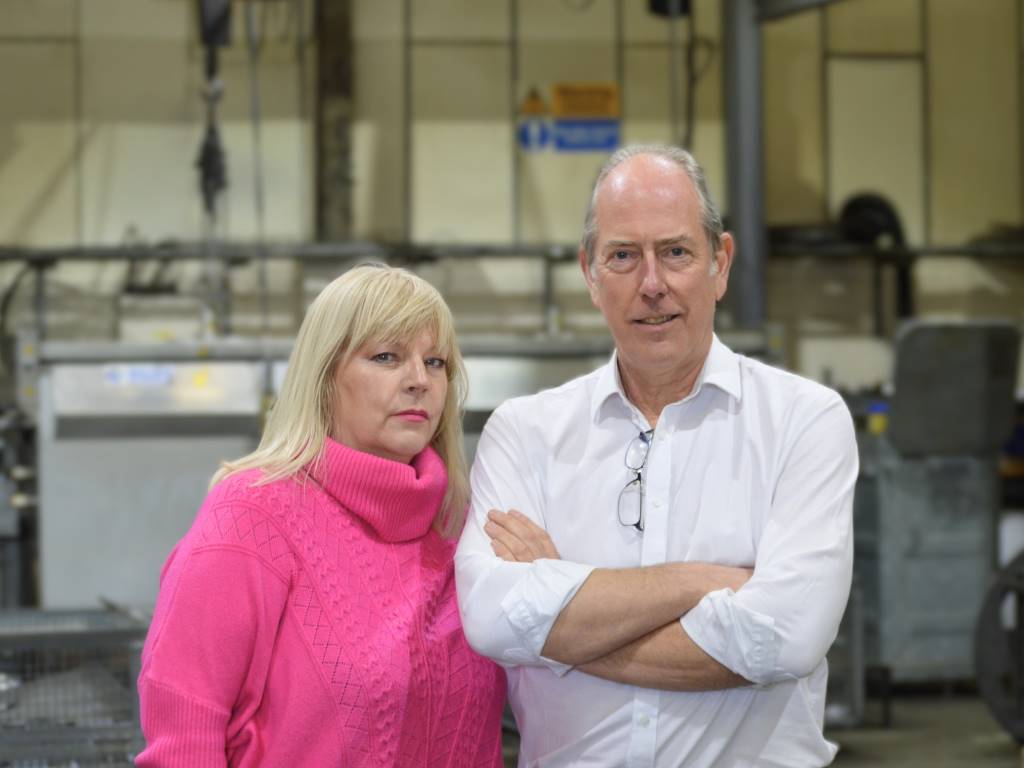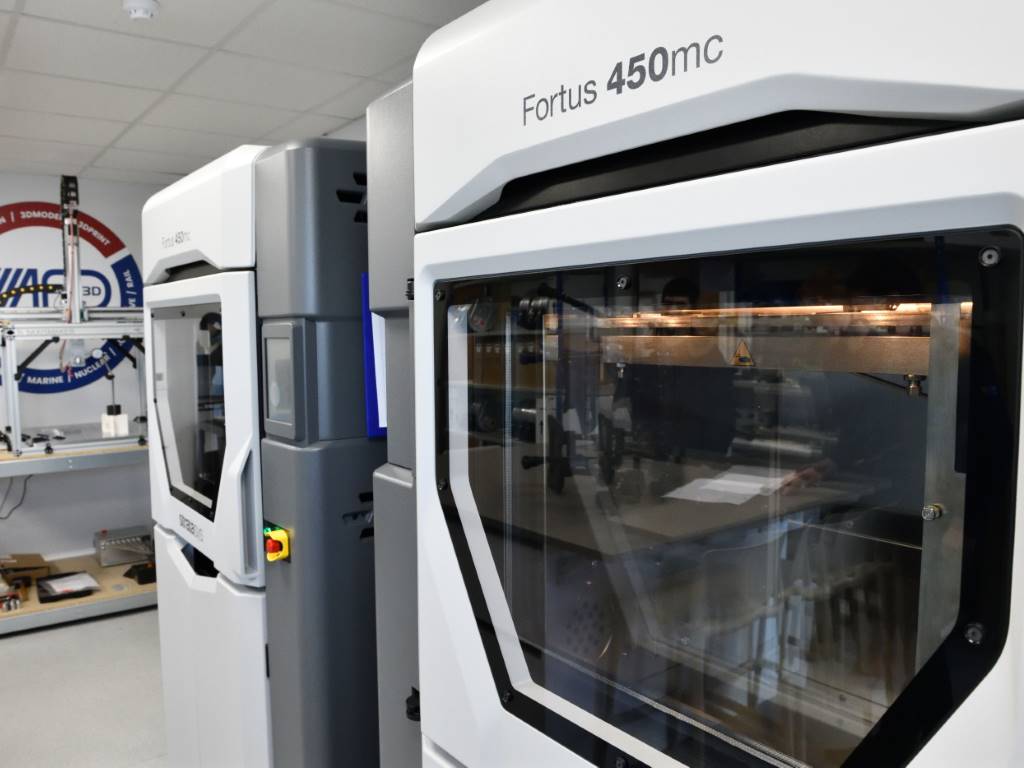Technology in motion
Having taken on various fuel connector casting projects over the years, Tritech was well placed to secure the contract for Airbus Military's A400M transporter.
However, a redesign of the components meant a much more radical approach to manufacture with the company embracing highly sophisticated 5-axis technology. Over the last 14 years, the Wrexham-based investment casting first tier supplier has been keenly investing in the latest machining technology, and with the complex geometries of the A400M components providing a substantial challenge, its latest investment in a Huron MX4 twin pallet 5-axis machining centre is no exception. Although it turned out to be one of the most ambitious projects that Tritech has undertaken, the A400M fuel connector package started life as a typical investment casting contract, supplying critical fuel connectors that sit in the wings of the aircraft. However, when Airbus established that considerable weight savings could be achieved by reducing the wall thickness of 64 parts in each set from 2mm down to 1mm, mechanical and metallurgical integrity dictated that the parts would need to be machined from solid (MFS) aluminium to a tolerance of 15µm. Setting new standards The Production Engineering management team at Tritech quickly established the key criteria and level of investment required to achieve the manufacturing objectives. Paul Beer, engineering and development manager at Tritech explains: “We were very aware that the MFS project was going to require not only a state-of-the-art 5-axis machine, but also commitment to a very significant turnkey project. When looking for a supplier our list of essential requirements included a twin pallet system with a flexible multi-machine, multi-pallet system integration and unmanned capability; the ability to demonstrate successful machining of a demo part to specification and within an estimated cycle time; a record of outstanding UK support for applications, engineering and service; total project management capability; and an ability to manage the supply chain.” Most importantly, machine suppliers had to demonstrate that the demo part could be produced in a single set-up, with the exception of a minor preliminary operation for workholding. High on the shortlist was Huron and a cutting trial was quickly arranged. Mr Beer continues: “The requirement had now developed beyond a cutting trial and Huron was requested to submit three parts to Airbus as ‘real parts'. Huron's application engineers produced the parts under intense pressure on the Huron K2X8Five, 5-axis machining centre. Testament to their ability is that when we left Huron after our two day visit we had finished parts in our cases. The guys at Huron continued to machine the opposite hand of these parts and couriered them over to Tritech the next day. They were then submitted to Airbus on time and to drawing specification and within the allotted cycle time, where we were met with comments from its inspection department like ‘the best that we have seen within such a short development time'. Needless to say Fortron UK – Huron's UK agent – secured the purchase order for the MX4.” With the required specification established, the establishment of the contract between Tritech and Fortron UK resulted in the delivery of the MX4 machine. Key features include the incorporation of a 24,000rpm liquid cooled, high speed spindle, linear drive technology enabling acceleration rates in excess of 1g, a high capacity 84 station ATC and the latest Siemens 840D PC-based control. Fortron UK's sales manager Mark Devall explains: “One of the major advantages of the MX4 along with its finite element designed structure is Huron's patented TRIM (Table with Rotary Integral Motor) technology, which unlike other 5-axis table drive systems does not use a worm gear to drive the combined movements of the A and C axes, instead using integral drive motors. “The result is the elimination of axis reversal imperfections on the surface finish of a contoured profile along with the added benefit of increased acceleration and deceleration response times which together achieve a higher quality component in a shorter cycle time.” Best of the best Having put the machine contract in place, Fortron UK then set about helping Tritech establish the supply chain for all its additional requirements, such as CAD/CAM, workholding, tooling, and probing. Mr Beer adds: “We had selected a world class machine tool and supplier and I wanted to make sure that this philosophy continued with the selection of all project suppliers.” Following an extensive selection process, companies were chosen on the basis of their expertise and enthusiasm for the project. This included Delcam for its CAD/CAM software and services, Seco Tools for spindle tooling and applications, REM Erowa for high accuracy workholding and Renishaw for probing systems and laser tool measurement and management.” The first project meeting to set the strategy was held at the technical centre of Seco Tools in Alcester, Warwickshire, including all the project members and with Fortron UK taking overall responsibility. Mr Beer expands: “The project management from Fortron UK was very professionally handled with an excellent dynamic project management document capturing all of the partners' actions. This enabled all the partners involved with the project to have an open and complete overview of the project status and was a great driver for all actions to be completed in a timely manner. The applications engineering support from both Huron and Fortron was seamless, working very closely with applications engineering support from Delcam and Seco.” The complete package Delcam offered its PowerMill CAM software, which provides a powerful port machining capability, lending itself well to the application and the demanding surface finish requirements of the through bore on the fuel connector components. It also provided an extensive onsite training and support package carried out by applications engineers from itself, Huron and Fortron UK, giving Tritech the in-house capability to develop and complete up to six complex 5-axis MFS parts in one week. As well as a competitive product package, Seco Tools also supplied project support through its Component Engineering Team, which spent a significant amount of time working with its partner applications engineers. John McGhee, senior applications engineer at Seco explains: “The Jabro and Aeromaster high speed tooling supplied by us combined with our modular EasyShrink system, allowed Tritech to fully utilise the machining capabilities of the MX4 by maximising metal removal rates and achieving outstanding component surface finishes.” All of this could not be achieved however without a workholding package that would allow the MFS parts to be produced in the minimum number of operations, allowing full spindle/ tool axis through the full 5-axis volume. Peter Ryland from REM Systems (representing Erowa pallet systems in the UK) was present at all project meetings to offer a high level of product support, with Mr Beer claiming that: “Peter had a huge role to play at the front end of this project as he was involved in the machining strategy literally from the base up and the Erowa equipment has proved to be a superb asset to the complete machining process. “Pallets can be taken off the machine and replaced within 0.010mm, which gives us great confidence should we need to interrupt a machining process, and this fits perfectly with our unmanned flexible manufacturing philosophy for the future.” Team effort Completing the process chain, the MX4 was additionally specified with the NC4 laser tool measuring system from Renishaw in addition to an RMP600 spindle probe and AE Pro inspection software. Mr Beer continues: “The Renishaw probing system has been a very important asset to the MX4, controlling tooling functionality and piece part datum setting. The very high standard of accuracy is transferred onto the part and the quality of product coming from the machine is excellent. “The introduction of AE Pro will continue over the coming months and will enable critical dimensions to be measured on the machine, providing a full inspection report and eliminating the need for a full CNC CMM check for first-off validation, eliminating the time taken for inspection and pass off.” Tritech claims that: ‘This project is testament to how a group of companies can come together to produce a finished product and process that is truly outstanding'. Certainly, what stands out is the level of willingness of each partner to work together and dedicate resources and expertise to a common goal with what is perhaps an uncommon strategy, ultimately to the benefit of all parties. As far as Tritech's development into the future goes however, MFS is set to become a highly valuable business asset as manufacturers give weight and strength further precedence over cost to produce ever more sophisticated aircraft. Tritech
www.tritechgroup.co.uk Fortron
www.fortron.uk.com














